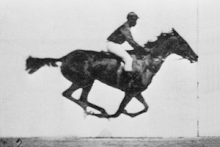"To know is not to be wise. To know how to use knowledge is to have wisdom." -Charles Spurgeon
Theory of knowledge is one of the core requirements in the IB diploma programme, and it obligates us to not respond to our environment passively, but actively. During our 2 year course, we will be answering the question, "How do we know what we know?" thereby investigating and examining the deeper implications of countless aspects of our daily lives.
Now, the DP course consists of the
learner profile, the
core requirements, and last but not in any way the least, the
subjects. The six groups which make up the DP subjects ensure that we, as pupils as well as leaders of tomorrow's nation, learn to become all-rounded and extremely capable human beings. Personally, I have never excelled at one particular subject more than any other, which put me in a difficult situation when it was time to choose my DP subjects. Having passed my Cambridge IGCSE exams with grades which were more than sufficient to put me in the DP course, I was conflicted.
Which subjects do I need the most? What is it that I want to do anyways?
After days of pondering, I finally came up with my final decision: English Literature, French, Biology and geography for my HL subjects, in addition to maths and chemistry as my SL subjects. Although I thoroughly understand that the IBO wants us to be multi-capable, I am still failing to see where these subject choices are going to take me in the future. To make things worse, I don't even know what I want to do in the future, nor where I want to go after I graduate high school. So for now I guess I will just have to do my best at each and every one of these subjects.
Whether I will be able to excel in everything that I do is another question. Obviously we must all strive to be the best we could ever be, however, we live in a world where there is no such thing as "perfection". After all, what really makes a "perfect" student? Or rather, what makes the "perfect" subject combination? More importantly, can the answers to my previous questions be justified in some way?
Or maybe I am over-thinking this entire process. Even though it has only been a week since school started, I am getting a rough idea on where my subjects lie in terms of my liking. Surprisingly enough, I am actually enjoying my chemistry lessons now, even though I was about to drop it during my second year of IGCSEs. In contrast, French used to be my favourite subject, (mostly because I found it to be extremely easy) but now I am not entirely in love with it. Whereas geography, like always, remains at the very top on my educational ladder. I guess what I'm trying to say is that not everything is what it seems. My mind and my opinions are constantly going to be influenced by others thus changing throughout the following two years, but it will be my duty to stay on the right track, no matter what happens, and be my own biggest supporter.
The main aim of this post was to rank my six subjects in order of favourism, but I basically ended up bombarding my blog with a piece of my mind. Oh well, organisation skills are something DP students acquire
during the 2 year course anyways! I'm just getting started...







